This report includes key accomplishments from 2019. However, it is not an exhaustive list of all of the advocacy work that ACS CAN staff and volunteers did across the country. For more information on ACS CAN’s advocacy efforts, explore our website.
Sustained Investments in Cancer Research
|
In 2019, the National Institutes of Health (NIH) provided 50,000 extramural grants to 300,000 researchers at 2,500 universities, medical schools and other research institutions across all 50 states. |
Advancements in cancer research are essential to driving discovery, saving lives and advancing our fight against this disease. The ability to ensure innovative breakthroughs reach those who need them most depends entirely on sustained, year-over-year increases in funding for cancer research.
Increasing Research Funding at All Levels of Government
Throughout 2019, Congress made it clear that funding for cancer research and cancer control programs is a priority. ACS CAN strongly advocated throughout the year for sustained federal funding at the NIH and the National Cancer Institute (NCI), and celebrated when a year-end bipartisan funding package included significant funding for cancer research and prevention programs, including:
A $2.6 billion increase for the NIH, including a $296 million increase for the NCI
- $25 million for the continued implementation of the Survivorship, Treatment, Access and Research (STAR) Act, the most comprehensive childhood cancer legislation ever passed by Congress
- A $50 million childhood cancer data initiative to facilitate a connected data infrastructure and integrate multiple data sources to make data work better for patients, clinicians and researchers
- A $10 million increase for cancer control programs at the Centers for Disease Control and Prevention (CDC), including increases for skin cancer, prostate cancer and ovarian cancer programs, as well as a $20 million increase for the Office on Smoking and Health
- A new $50 million initiative to support a data modernization effort at the CDC, with language that directs the organization to prioritize advancements in cancer registries as part of the effort. Cancer registries provide a critical road map in the fight against cancer, and this is the first funding increase to the program since fiscal year 2010 (FY2010).
Thanks to potentially lifesaving advancements in research, there are more than 16.9 million cancer survivors in the U.S.
Texans Vote ‘Yes’ to Cancer Research Funding
|
|
ACS CAN is the founder and the leading organization of One Voice Against Cancer (OVAC), a coalition of leading nonprofits unified by the importance of funding cancer research. During the 19th annual OVAC Lobby Day, nearly 100 volunteers from 32 states and 50+ cancer organizations engaged in 144 meetings with members of Congress and their staff, advocating for sustained funding for the NIH and the NCI. |
ACS CAN volunteers and staff continue to advocate for critical cancer research funding at the state level. In 2019, the Iowa team successfully maintained $150,000 in funding directed to melanoma research at The University of Iowa. In Hawaii, legislation passed in June that includes a one-year appropriation of $350,000 to the University of Hawaii Cancer Research Center to investigate factors contributing to the state’s highest-ever liver and bile duct cancer mortality rates.
|
ACS CAN Volunteers Share Their Stories at Childhood Cancer Action Days
Ten ACS CAN volunteers from seven states joined more than 200 other childhood cancer patients, survivors and caregivers on Capitol Hill for the Alliance for Childhood Cancer’s eighth annual Childhood Cancer Action Days.
- Advocates asked their lawmakers to:
- Increase research funding for the NIH and the NCI.
- Fully fund the Survivorship, Treatment, Access and Research (STAR) Act, the comprehensive childhood cancer research bill that was signed into law in 2018.
- Support the Palliative Care and Hospice Education and Training Act (PCHETA) to improve quality of life for survivors and their families.
Cancer Prevention and Early Detection
Breast and Cervical Cancer Prevention
The CDC’s National Breast and Cervical Cancer Early Detection Program (NBCCEDP) is critical to increasing access to and awareness of potentially lifesaving cancer screenings for low-income, uninsured and underinsured women. Protecting funding for breast and cervical cancer screening and prevention programs at both the state and federal levels remains a top priority for ACS CAN, and one in which we continue to make a significant impact across the country.
In West Virginia for the 10th year in a row, ACS CAN advocates secured critical funding for the state’s Breast and Cervical Cancer Diagnostic and Treatment Fund. Ohio lawmakers expanded the state’s Breast and Cervical Cancer program eligibility criteria to provide more vulnerable and underserved women the opportunity to access potentially lifesaving screenings. In Illinois, ACS CAN advocated successfully for a $1 million increase for the breast and cervical cancer program, and Colorado advocates passed legislation calling for a 10-year extension for the state breast and cervical cancer treatment program for uninsured women.
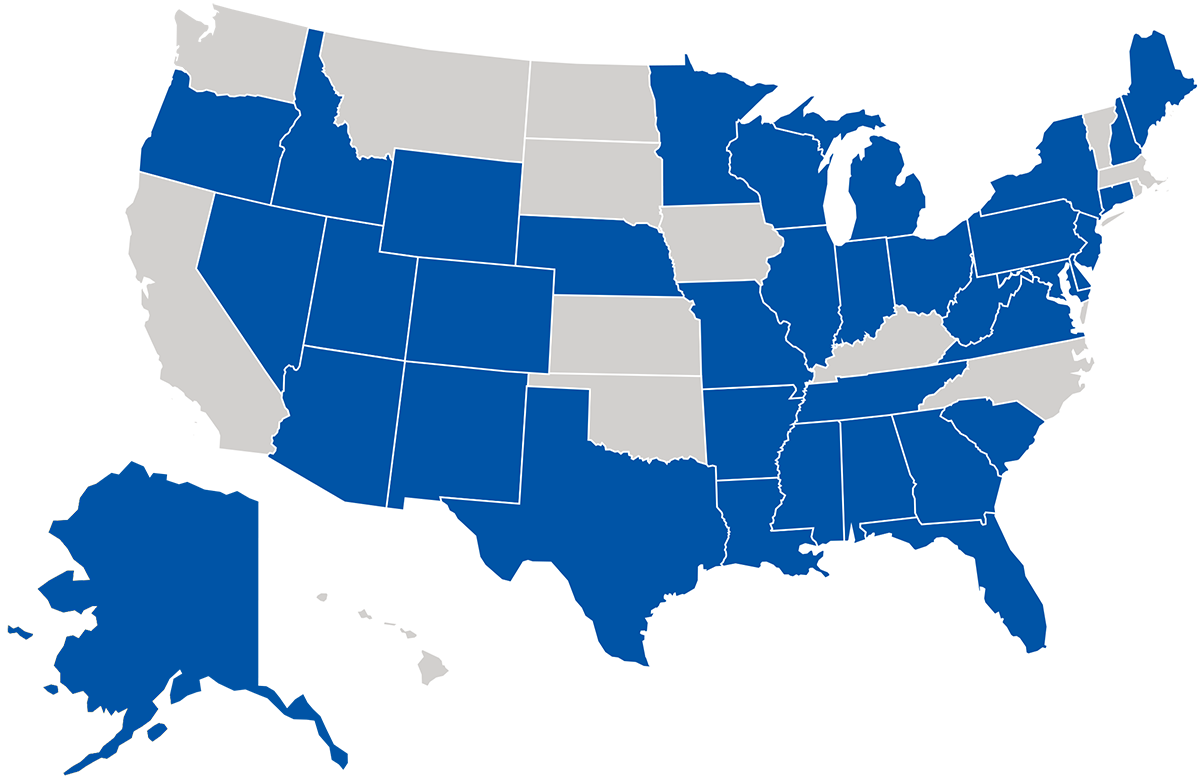 |
|
In 2019, 36 states successfully protected, maintained or increased funding for breast and/or cervical cancer screening programs. |
Colorectal Cancer Prevention
Nearly all colorectal cancers are preventable or treatable when detected at an early stage. Despite this, colorectal cancer is the second-leading cause of cancer death among men and women combined in the U.S.
Out-of-pocket costs create financial barriers that discourage use of recommended screening services, particularly for Medicare beneficiaries on a fixed income. A loophole currently exists that results in a surprise bill of as much as $350 for Medicare patients if a polyp is found and removed during a screening colonoscopy. ACS CAN strongly advocated throughout 2019 to close the loophole and stop surprise bills for seniors receiving potentially lifesaving screenings, which are critically important to better detecting and treating colorectal cancer in its early stages.
- ACS CAN worked to advance the Removing Barriers to Colorectal Cancer Screenings Act through Congress. In December 2019, the House of Representatives passed comprehensive drug pricing legislation that included a provision to eliminate this cost-sharing loophole.
- The Removing Barriers to Colorectal Cancer Screenings Act was one of the most-supported pieces of legislation in Congress, with 337 House cosponsors and 61 Senate cosponsors in 2019.
- ACS CAN led 43 other patient and provider organizations in sending a letter to President Trump, asking him to exercise his administrative authority to fix the loophole.
- ACS CAN CEO Gary M. Reedy penned an op-ed in USA Today calling on President Trump to fix the Medicare loophole.
ACS CAN will continue to advocate to close the loophole and stop surprise bills for seniors receiving lifesaving screenings.
State volunteers and staff urged their policymakers throughout 2019 to dedicate funding for colorectal cancer screening and control programs. Alabama, Arkansas, North Dakota and South Carolina each maintained or increased appropriations for their state colorectal cancer screening programs.
|
|
Skin Cancer Prevention
One of the most avoidable risks of skin cancer – the most commonly diagnosed cancer in the U.S. – is exposure to ultraviolet (UV) radiation. ACS CAN advocates for laws restricting the use of indoor tanning devices for minors, a policy that is proven to significantly reduce this increased risk of skin cancer. In 2019, both Maryland and Maine passed legislation prohibiting the use of indoor tanning devices by youth under the age of 18. The achievement in Maine was the result of a nine-year campaign spearheaded by ACS CAN volunteers and staff.
Healthy Eating and Active Living Environments
For people who don’t use tobacco, the greatest behavioral risk factors for cancer are diet, levels of physical activity, amount of alcohol consumption and weight. ACS CAN advocates have worked with their state policymakers to develop and implement ways to make healthy choices more accessible.
Delaware, Hawaii and New York City passed legislation in 2019 ensuring that healthy beverages are the default drink in children’s meals; the ACS CAN New York City team also secured $20 million in funding for physical education programming. The Michigan team played a critical role in securing increased funding for initiatives to increase access to healthy foods in schools around the state. In New Jersey, new legislation requires the state Department of Health to develop a Healthy Corner Store Program aimed at improving the availability of fresh produce and healthy food in small food retailers in rural, urban and low- and moderate-income areas. West Virginia committed $500,000 in new funding to address obesity rates throughout the state.
Improving Quality of Life for Cancer Patients and Survivors
|
By the end of 2019, PCHETA had a significant number of bipartisan cosponsors: 295 in the House and 37 in the Senate. |
Cancer patients, survivors and their families deserve the best quality of life possible, from the point of diagnosis through survivorship. ACS CAN frequently engages with state and federal policymakers to support policies that expand access to, and understanding of, palliative care, a type of coordinated care that focuses on treating the whole patient as well as the disease.
ACS CAN has led the charge to advance the Palliative Care and Hospice Education Act (PCHETA) through Congress, and in October 2019 the bill was passed by the U.S. House of Representatives with overwhelming bipartisan support.
Once passed, PCHETA will:
- Increase federal research funding for palliative care, including pain and symptom management.
- Establish palliative care education and training programs for doctors, nurses and other health professionals.
- Create a national public education and awareness campaign to educate patients and providers about the availability and benefits of palliative care.
ACS CAN volunteers and staff were instrumental in asking their lawmakers to advance this critical legislation.
|
At the state level, ACS CAN has created model legislation that establishes a Palliative Care Advisory Council with experts to build out palliative care programs and education initiatives. In 2019, Kentucky, Louisiana and New Jersey became the latest states to establish a Palliative Care Interdisciplinary Advisory Council and Professional Information and Education Program, a significant step in all three states toward greatly improving patient quality of life. The Massachusetts state budget included a $1 million increase in funding for pediatric palliative care programs that support children with serious illness and their families.
|
An estimated 2.3 million individuals with a history of cancer rely on the health care coverage provided by their state Medicaid program.
Access to Quality Health Care
Access to affordable, quality health care is an essential piece of ACS CAN’s mission to reduce death and suffering from cancer. Research clearly demonstrates that insurance status directly impacts health outcomes, and that those who are insured are diagnosed earlier when cancer is easier and less expensive to treat. ACS CAN works diligently at every level of government to expand access to affordable care for all cancer patients, survivors and those most at risk of the disease.
Medicaid Covers US
 In partnership with the American Cancer Society and the Robert Wood Johnson Foundation, ACS CAN in 2019 continued its Medicaid Covers US campaign, a national public education project that engages community members, health care providers, patients and their families, policymakers and the public in dialogue about the impact that Medicaid has on the health of patients, health care providers and state and local economies. With an emphasis on eight states – Alabama, Georgia, Kansas, Louisiana, North Carolina, Oklahoma, Tennessee and Virginia, the campaign fosters discussion on the crucial role that Medicaid plays in improving the well-being of communities. The project, available at medicaidcoversus.org, includes three documentary- style films and a digital storybook that share the experiences of individuals, families and health care providers who have seen firsthand how Medicaid sustains communities, health systems and families. Medicaid Covers US is a crucial resource in ACS CAN’s ongoing work to highlight the benefit of access to affordable health insurance coverage for those who need it most.
In partnership with the American Cancer Society and the Robert Wood Johnson Foundation, ACS CAN in 2019 continued its Medicaid Covers US campaign, a national public education project that engages community members, health care providers, patients and their families, policymakers and the public in dialogue about the impact that Medicaid has on the health of patients, health care providers and state and local economies. With an emphasis on eight states – Alabama, Georgia, Kansas, Louisiana, North Carolina, Oklahoma, Tennessee and Virginia, the campaign fosters discussion on the crucial role that Medicaid plays in improving the well-being of communities. The project, available at medicaidcoversus.org, includes three documentary- style films and a digital storybook that share the experiences of individuals, families and health care providers who have seen firsthand how Medicaid sustains communities, health systems and families. Medicaid Covers US is a crucial resource in ACS CAN’s ongoing work to highlight the benefit of access to affordable health insurance coverage for those who need it most.
Increasing Access to Care through Medicaid
Our ability to eliminate health and cancer disparities is dependent on providing people with comprehensive health coverage that is affordable regardless of income level. Expanding access to health care through Medicaid is a key opportunity for states to utilize federal funds to help more Americans access the care they need.
In Montana, ACS CAN helped pass a reauthorization of the expansion of the state’s Medicaid program in 2019, and in Idaho advocates successfully defeated attempts to repeal the state’s Medicaid program.
An increasing number of states have sought flexibility in administering the Medicaid program with 1115 Research and Demonstration waivers, many of which include provisions that could seriously hinder patient access to care, such as work or administrative requirements. In 2019, ACS CAN advocates successfully prevented the implementation of work requirements for Medicaid beneficiaries in Iowa, Maine, Missouri, New Hampshire, West Virginia and Wyoming, ensuring cancer patients are able to maintain eligibility for their health care coverage.
In June 2019, ACS CAN joined an amicus curiae (friend- of-the-court) brief in an appeal to the U.S. Court of Appeals for the District of Columbia Circuit, arguing that Kentucky’s Medicaid work requirements will cause thousands to be disenrolled from Medicaid in the state and lead to worse health outcomes for cancer patients who rely on Medicaid for coverage. The appeal was in support of a ruling that blocked HHS Secretary Alex Azar’s approval of Medicaid waivers with work and reporting requirements and other eligibility and enrollment restrictions in Kentucky.
Fighting to Preserve Patient Protections
In December 2019, the U.S. Court of Appeals for the Fifth Circuit ruled in the case Texas v. United States that the individual mandate without a tax penalty was unconstitutional, sending the case back to the District Court to determine if the mandate can be “severed” from the rest of the health care law known as the Affordable Care Act and whether a ruling should be limited to just plaintiff states or apply to all states. The ruling causes uncertainty for the millions of Americans who rely on the health care law to access comprehensive health coverage.
Sixteen patient groups joined ACS CAN to file an amicus curiae brief on behalf of the millions of patients with pre-existing conditions who depend on the critical protections provided by the health care law. The groups provided the court with extensive scientific data linking health insurance coverage with medical outcomes and detailed the potentially devastating impact on patients should the court rule the health law invalid.
ACS CAN continues to advocate on behalf of the cancer community and ensure that the impact on cancer patients is considered in any future legal decisions.
|
|
Nearly 20 million people gained access to health insurance coverage as a result of the enactment of the Affordable Care Act.
Throughout 2019, ACS CAN worked hard at the state level – including in Maine, Nevada and New Hampshire – to shore up patient protections and ensure cancer patients and survivors are able to continue to access the care they depend on, regardless of their health status or if they have pre-existing conditions.
Improving Patient Access to Health Care
|
Survivor Views: Ensuring the Voices of Cancer Survivors Are Heard In June 2019, ACS CAN launched Survivor Views, an initiative designed to further incorporate the experiences and perspectives of cancer survivors in the policy process. The initiative established a panel of more than 3,000 cancer survivors to participate in regular surveys based on ACS CAN priority issues, such as experiences with pain and palliative care, how survivors access and pay for care and their understanding and preferences related to genetic testing, diagnostic testing oversight and use of medical data for research. Data generated from these surveys will directly support and inform ACS CAN’s policymaking process. |
Seeking ways to control costs, health insurers often put in place utilization management techniques. Some practices – such as requiring prior authorizations before a prescription can be filled or step therapy requiring patients to try and fail on an insurer-chosen drug before gaining access to another, more expensive drug – may delay access to potentially lifesaving care for patients.
ACS CAN supported a bill in Kentucky in 2019 that streamlines the state’s prior authorization process to make it timelier and more transparent for patients. Bills passed in Georgia, Maine, Oklahoma and Virginia to protect patients with serious illnesses by creating an exception process for step therapy when appropriate, providing quicker access to the treatment they need.
Medication synchronization allows pharmacists to coordinate all of a patient’s maintenance prescription medications to be filled on the same date, promoting better patient outcomes and adherence to their medication regimen. ACS CAN successfully advocated for the passage of medication synchronization legislation in Indiana, Nebraska and Pennsylvania in 2019.
Protecting Patients from Inadequate Health Insurance
Short-term, limited-duration (STLD) health plans can deny or charge people more for coverage based on their health status, such as cancer, and are exempt from covering essential health services, like hospitalization. ACS CAN strongly opposed a finalized rule by the Department of Health and Human Services (HHS) in 2019 that allowed for the extension of these plans for up to 36 months, and led 12 other patient organizations to file an amicus curiae brief in support of a federal lawsuit filed to stop the final rule, arguing that the plans would destabilize the insurance market and force those who need comprehensive coverage to pay more or be unable to obtain the coverage they need. The court ruled in favor of preserving the rule, and ACS CAN anticipates filing another amicus curiae brief in higher court appeals. ACS CAN will continue to work diligently to bring the patient voice to this critical fight for adequate health care.
ACS CAN led efforts at the state level to curtail the extension of the STLD plans in 2019. In Missouri, a proposal to allow short-term insurance policies to extend to a year, rather than six months, was successfully defeated. Maine, Rhode Island and Virginia also successfully opposed the expansion of short-term insurance plans.
ACS CAN released a report in 2019 illustrating the inadequacies of short-term health insurance plans by examining short-term plans for a hypothetical breast cancer patient in six states. In each scenario, we found that the patient would be exposed to significant out-of-pocket costs, which in some cases would be tens of thousands of dollars.
Committing to Reducing Patient Drug Costs
Reducing the cost of prescription drugs is a crucial piece of efforts to improve patient affordability of health care. A law implemented in New Jersey in 2019 requires pharmacy benefit managers and payers to charge patients the actual cost of a prescribed drug if the cost is lower than patients’ out-of- pocket cost. Virginia and West Virginia adopted legislation that helps cancer patients pay for prescription medicines by requiring insurance companies to count copayment assistance payments toward a patient’s cost- sharing responsibilities.
At the federal level, the House of Representatives passed legislation that included multiple provisions, including a cap on out-of-pocket costs in Medicare Part D, aimed at reducing prescription drug prices. ACS CAN has long advocated for and strongly supports imposing a cap on out-of-pocket prescription drug costs, which could result in more affordable and predictable expenses for Medicare beneficiaries with cancer, many of whom rely on Part D drug therapies to treat their disease and prevent recurrence.
|
|
Amplifying the Voices of Cancer Patients and Survivors
|
Jennifer Wall, Cancer survivor and ACS CAN volunteer |
|
In recognition of our successful strategic communication campaign, ACS CAN received a Silver Award from the 2019 Modern Healthcare Marketing Impact Awards. |
In 2018, the Department of Health and Human Services (HHS) announced a proposed rule around Medicare Part D’s six protected classes policy that, if finalized, could have dramatically impacted timely access to affordable medication and quality care for cancer patients enrolled in the program. Specifically, HHS proposed allowing plans to use additional utilization management techniques, like prior authorization, for all drugs in these classes.
ACS CAN executed a five-month-long advertising, grassroots and lobbying campaign in 2019 to express widespread patient opposition to the proposed changes.
- January: Along with nearly 60 other patient and provider organizations, ACS CAN launched print and digital ads calling on HHS to stop the proposed changes.
- ACS CAN advocates shared their concerns directly with policymakers:
- The #CoverCancerRx hashtag was used nearly 1,380 times throughout the year, and ACS CAN’s posts were shared more than 1,400 times.
- 8,500 emails were sent to HHS Secretary Alex Azar and members of Congress.
- 7,800 calls were made to members of Congress, urging them to weigh in on the issue.
- March: ACS CAN met with members of Congress to voice our strong opposition to the proposed rule and hosted a congressional briefing to present the results of a new nationwide survey of cancer patients, caregivers and doctors that detailed the significant negative impact the policies could have on cancer patients who receive their care through Medicare.
- May: ACS CAN launched a series of TV ads featuring our volunteers explaining how the proposed rule could affect their access to the potentially lifesaving medicines.
-
The TV ads aired more than 100 times in the Washington, D.C., market on cable and broadcast outlets.
Just two days into the second phase of ACS CAN’s campaign, HHS issued its final rule for Medicare Part D, which did not include all of the proposed changes to the six protected classes policy.
Tobacco use is the leading cause of preventable death nationwide.
Reducing Tobacco’s Toll
Tobacco use represents a significant, devastating burden on our nation’s health. Almost one-third of cancer deaths in our country are still caused by smoking.
ACS CAN works persistently and strategically at each level of government to advance strong, evidence-based tobacco control policies that are proven to effectively prevent people, particularly youth, from starting to use tobacco, as well as encourage current users to quit.
Protecting Kids from Flavored Tobacco Products
Tobacco use among youth reached epidemic levels in 2019, fueled both by the proliferation of flavored tobacco products on the market and the absence of the Food and Drug Administration (FDA) exercising its full authority to regulate all tobacco products, including e-cigarettes. The tobacco industry uses fruit, candy, mint and menthol flavors to attract and addict youth to its deadly products.
In response to the skyrocketing rates of youth use of e-cigarettes, policymakers at every level of government took significant steps to address the epidemic of tobacco use among youth. In September 2019, President Trump stated his intention to remove all flavored e-cigarettes from the market. ACS CAN and our partners strongly supported the administration’s plan and urged its immediate implementation. In response to reports that the administration was considering weaker guidance that allowed exemptions for menthol flavors, ACS CAN led public health partners in a print and television advertising campaign calling on President Trump to put children’s health over the tobacco industry’s profits and remove all flavored e-cigarettes from the market. ACS CAN CEO Gary M. Reedy attended a meeting at the White House to urge the president to protect the next generation from a lifetime of addiction by moving forward with his original and comprehensive plan.
|
More than 80% of teens who have ever used a tobacco product started with a flavored product. |
State and local policymakers across the country introduced policies and regulatory solutions in 2019 in an attempt to curb the public health crisis of youth tobacco use, and ACS CAN monitored policies and engaged with elected officials to make clear that tobacco control policies should comprehensively protect youth from all flavored tobacco products. Twenty-four localities in California – including Los Angeles County and Sacramento – passed ordinances restricting the sale of all flavored tobacco products, including menthol cigarettes, and voters in San Francisco overwhelmingly opposed an industry-backed ballot measure that would have overturned an ordinance restricting the sale of flavored tobacco products. In addition, New York City passed legislation prohibiting the sale of flavored e-cigarettes.
 ACS CAN also strongly advocated for federal legislation aimed at protecting children from the dangers of flavored tobacco products. ACS CAN launched an advertising campaign in support of the Reversing the Youth Tobacco Epidemic Act of 2019, which would prohibit the sale of nearly all flavored tobacco products, including mint and menthol products, and raise the minimum age of sale of tobacco products to 21, had 103 House cosponsors at the end of 2019.
ACS CAN also strongly advocated for federal legislation aimed at protecting children from the dangers of flavored tobacco products. ACS CAN launched an advertising campaign in support of the Reversing the Youth Tobacco Epidemic Act of 2019, which would prohibit the sale of nearly all flavored tobacco products, including mint and menthol products, and raise the minimum age of sale of tobacco products to 21, had 103 House cosponsors at the end of 2019.
Victory on Premarket Review of Tobacco Products
In a major victory for public health, a federal judge set a May 2020 deadline for e-cigarette manufacturers to apply to the FDA and submit their products for public health review if they want to keep their products on the market. ACS CAN and our partner public health groups brought the case, challenging the FDA’s decision to allow e-cigarettes and cigars to remain on the market for years without review. The years of delay allowed the tobacco industry to market its products to teens, addicting a new generation to those products.
FDA’s Ability to Regulate E-cigarettes
|
More than 5 million middle and high school students report using e-cigarettes. |
In a separate legal challenge by the tobacco industry, the U.S. Court of Appeals for the District of Columbia Circuit upheld the FDA’s authority to regulate e-cigarettes in their entirety by: requiring a manufacturer show that the product
is consistent with public health, upholding a ban on free samples and requiring scientific proof to make claims that a product is safer. ACS CAN had filed amicus briefs supporting the FDA at trial and on appeal.
Graphic Warnings Show the Dangerous Reality of Tobacco
As a direct result of a lawsuit filed by the American Cancer Society, ACS CAN and other public health groups after the FDA continuously delayed issuing its required warnings, a federal court ordered the agency to issue a proposed rule in August 2019. After analyzing the draft graphic warnings, ACS CAN joined with 39 other public health groups to support the warnings, providing scientific data and legal arguments to bolster the agency’s actions in the inevitable legal challenge to come from the tobacco industry. The final rule was to be submitted in March 2020.
Working toward a Smoke-free Nation
ACS CAN has worked across the country to implement strong smoke-free ordinances that protect everyone’s right to breathe clean air.
California passed legislation in 2019 ensuring all state parks and beaches are tobacco-free. Thirteen localities
in Mississippi, 10 in Louisiana, four in California, two in Colorado, Kentucky, Massachusetts and Minnesota
and one in Georgia, Indiana, Michigan, Missouri, Texas, Washington and Wisconsin passed smoke-free
ordinances. Florida, Guam, Minnesota, Nevada and South Dakota strengthened existing statewide smoke-free laws to include electronic cigarettes, a critical step to ensure existing legislation remains as strong and effective as possible and we don’t risk renormalizing tobacco use.
In 2019, ACS CAN Massachusetts staff and volunteers were instrumental in the passage of the nation’s first statewide law that comprehensively prohibits the sale of all flavored tobacco products, including menthol cigarettes, e-cigarettes, chewing tobacco and cigars, a significant win in the fight to protect youth from addictive tobacco products.
Atlanta Goes Smoke-free
|
|
ACS CAN has led a years-long campaign with local and national partners to implement a smoke-free workplace ordinance throughout Atlanta, Georgia, the home of the American Cancer Society global headquarters and one of the last major U.S. cities to go smoke-free. After strategic engagement with City Council members, building community support throughout Atlanta around the health and economic benefits of smoke-free laws and securing the participation of public health leaders – led by ACS CAN CEO Gary M. Reedy – the Atlanta City Council passed an ordinance in July 2019 that establishes smoke- free workplaces, including restaurants, bars and Hartsfield- Jackson International Airport, the world’s busiest airport.
Secondhand smoke causes nearly 42,000 deaths in the U.S. each year.
Increasing Tobacco Taxes
Research shows that regular, significant increases to taxes on cigarettes and tobacco products are an effective tool to reduce tobacco use – particularly among youth – and ultimately to save lives. The ACS CAN Illinois team advocated for a $1 per-pack cigarette tax increase in 2019, a policy expected to prevent approximately 28,700 kids from becoming adults who smoke. Maine, Massachusetts, Nevada, and Vermont increased taxes on e-cigarettes and other tobacco products to more effectively deter youth from initiating any form of tobacco.
Supporting State Tobacco Control, Prevention and Cessation Programs
Comprehensive evidence-based statewide tobacco control programs are an essential way to reduce tobacco-related disease and death. ACS CAN strongly advocates to protect and increase state investment in these lifesaving programs. Thirty-six states successfully maintained or increased funding for state tobacco prevention and cessation programs in 2019.
The Push for Tobacco 21
In response to the rapidly increasing epidemic of youth tobacco use, a flurry of state and local policy proposals were introduced to increase the legal minimum age of sale of tobacco products to 21 in 2019. While some Tobacco 21 bills have the potential to prevent youth use of tobacco, ACS CAN saw several pieces of legislation that were coopted by the tobacco industry to weaken restrictions, create carve- outs for certain products and exempt specific populations – creating an ineffective policy that does not comprehensively protect youth from dangerous tobacco products. ACS CAN strategically engaged with Tobacco 21 proposals across the country to determine which would most effectively reduce the burden of tobacco. We advanced strong policies in Connecticut, Delaware, Illinois, Maryland, New York, Vermont and Washington and defeated weak bills in Arizona, Iowa, Florida, Louisiana, Montana, Nevada, New Mexico and West Virginia.
Through direct lobbying, ACS CAN successfully engaged with Congressional leadership to advance legislation that would effectively reduce the burden of youth tobacco use. In December 2019, the federal year-end funding package added an amendment to the Tobacco Control Act of 2009, which raises the age of sale for all tobacco products from 18 to 21 – without exemptions – and extends age verification requirements from 26 to 30.
- In 2019 alone, 40 localities in Minnesota adopted Tobacco 21 measures.
|
|
Cervical cancer is the leading cause of cancer death for women in 42 countries.
Global Advocacy
Eliminating Death from Cervical Cancer
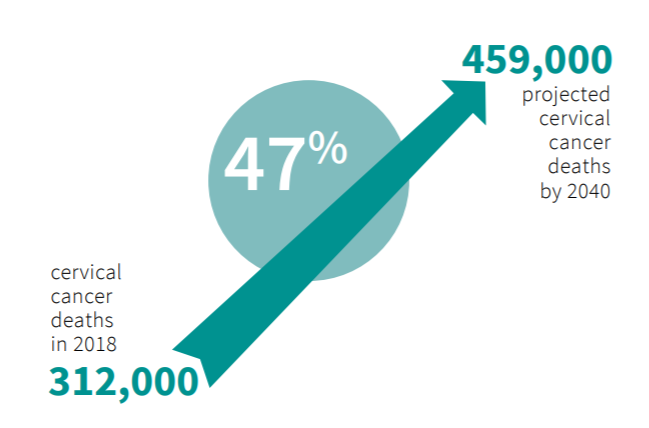 Cervical cancer remains the primary cause of cancer- related deaths among women in many low- and middle- income countries (LMICs), despite being one of the most successfully treated cancers if detected early. Cervical cancer is preventable with cost-effective interventions such as human papillomavirus (HPV) vaccinations and screenings and preventive treatment of precancerous lesions; yet, cervical cancer is not addressed or integrated into most global health programs. Ninety percent of all cervical cancer deaths occur in LMICs, a stark disparity that highlights the need for sustained U.S. investment to help implement proven strategies that reduce death caused by cervical cancer.
Cervical cancer remains the primary cause of cancer- related deaths among women in many low- and middle- income countries (LMICs), despite being one of the most successfully treated cancers if detected early. Cervical cancer is preventable with cost-effective interventions such as human papillomavirus (HPV) vaccinations and screenings and preventive treatment of precancerous lesions; yet, cervical cancer is not addressed or integrated into most global health programs. Ninety percent of all cervical cancer deaths occur in LMICs, a stark disparity that highlights the need for sustained U.S. investment to help implement proven strategies that reduce death caused by cervical cancer.
- Without action, deaths from cervical cancer will rise nearly 47% by 2050.
- With U.S. investment, we can accelerate the elimination of cervical cancer across the globe.
|
In 2019, ACS CAN cohosted two briefings with AdvaMedDx – one on Capitol Hill and one during the Congressional Black Caucus Foundation’s Annual Legislative Conference – that convened patient advocates and members of the public and private sectors to address how a unified collective of stakeholders can eliminate cervical cancer globally with a coordinated, strategic campaign. |
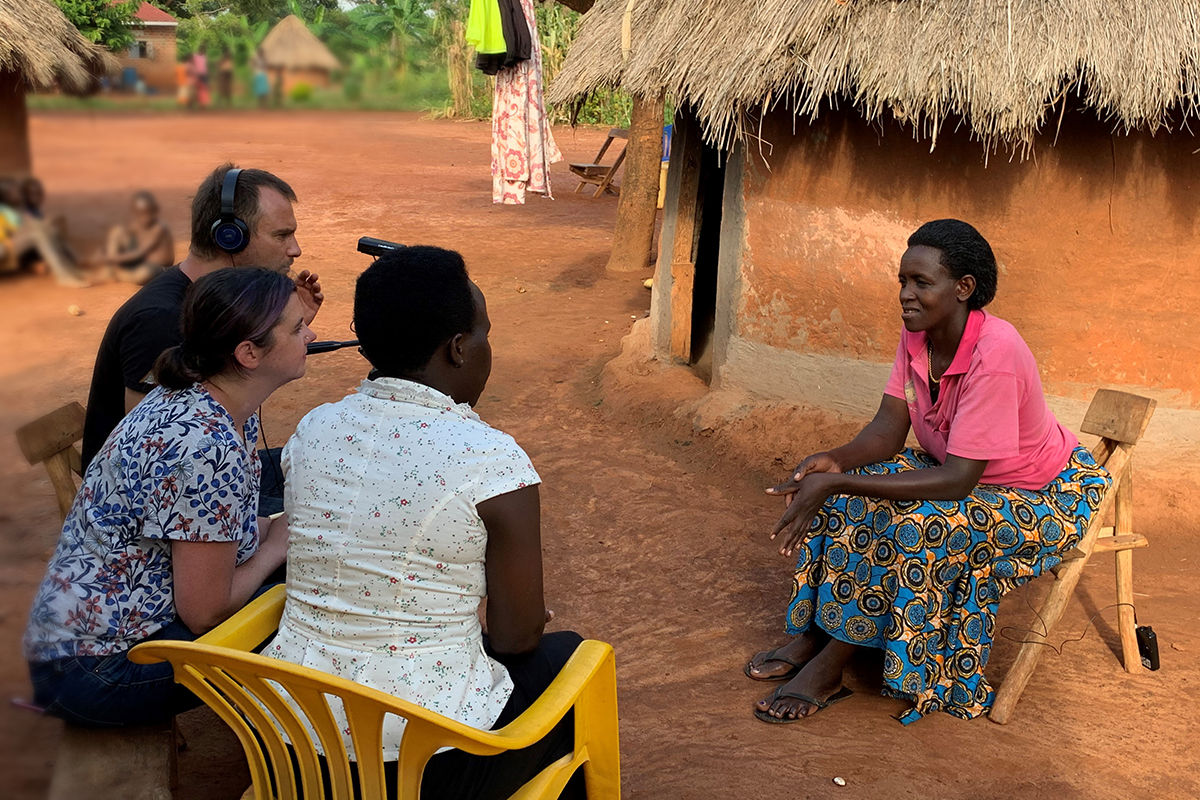 With the release of our new Saving Women’s Lives: Accelerating Action to Eliminate Cervical Cancer Globally report, ACS CAN called on Congress to dedicate a portion of U.S. global health funding to scale-up vaccination and screening and treatment services in LMICs. The FY2020 State Foreign Operations and Related Agencies Appropriations bill included language expressing Congress’ approval of U.S. government partnerships addressing HPV vaccination and cervical cancer screening and treatment programs globally. ACS CAN continues to actively engage with members of Congress to increase U.S. engagement and contribution to the elimination of cervical cancer.
With the release of our new Saving Women’s Lives: Accelerating Action to Eliminate Cervical Cancer Globally report, ACS CAN called on Congress to dedicate a portion of U.S. global health funding to scale-up vaccination and screening and treatment services in LMICs. The FY2020 State Foreign Operations and Related Agencies Appropriations bill included language expressing Congress’ approval of U.S. government partnerships addressing HPV vaccination and cervical cancer screening and treatment programs globally. ACS CAN continues to actively engage with members of Congress to increase U.S. engagement and contribution to the elimination of cervical cancer.
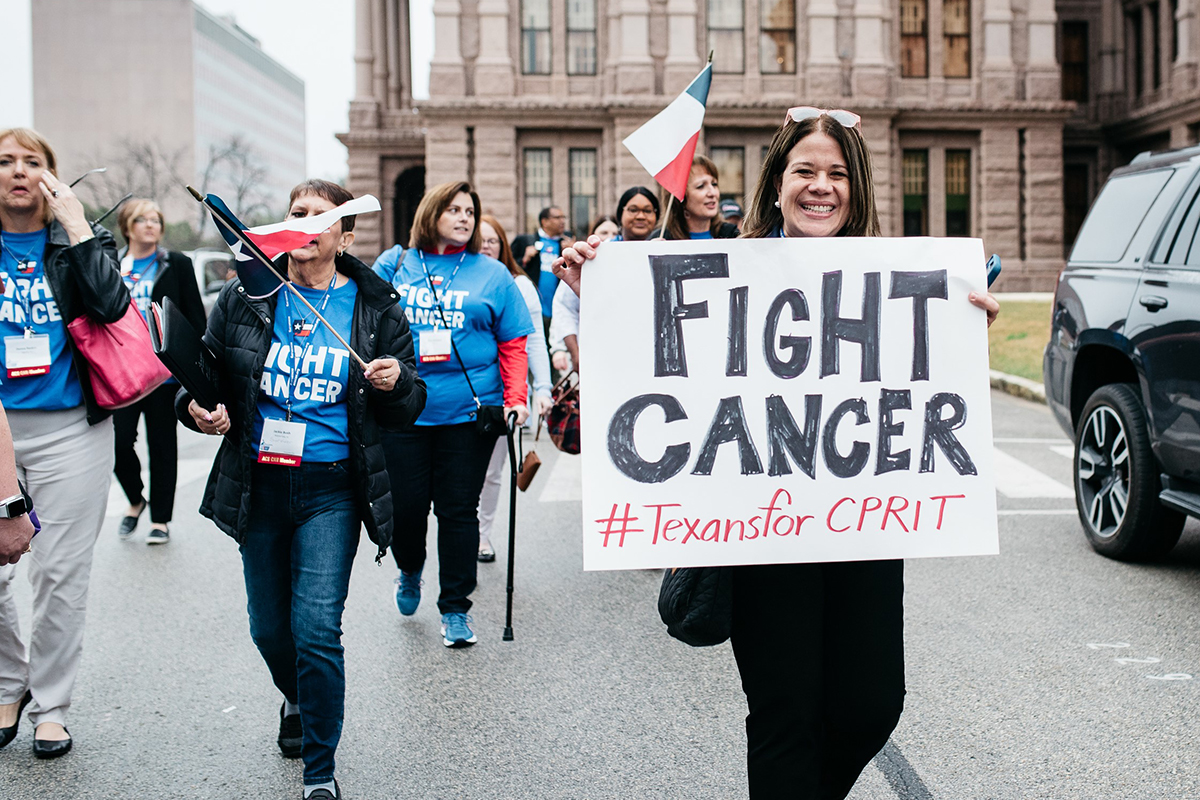 Texas showed its commitment to furthering cancer prevention and discovery when more than 63% of voters said ‘Yes’ to Proposition 6 during the November elections, allowing the state legislature to increase the maximum amount of bonds for the Cancer Prevention and Research Institute of Texas (CPRIT) by $3 billion. CPRIT has funded more than 5.7 million prevention services since its inception, and since 2010 has provided $2.5 billion in research grants. The ACS CAN Texas team was instrumental in securing this mission-critical win, which will ensure world-class cancer care continues throughout the state for the next decade.
Texas showed its commitment to furthering cancer prevention and discovery when more than 63% of voters said ‘Yes’ to Proposition 6 during the November elections, allowing the state legislature to increase the maximum amount of bonds for the Cancer Prevention and Research Institute of Texas (CPRIT) by $3 billion. CPRIT has funded more than 5.7 million prevention services since its inception, and since 2010 has provided $2.5 billion in research grants. The ACS CAN Texas team was instrumental in securing this mission-critical win, which will ensure world-class cancer care continues throughout the state for the next decade.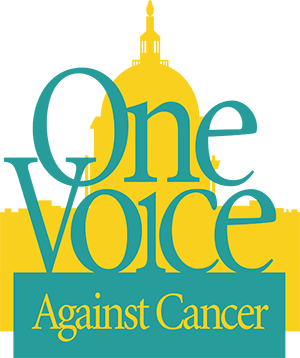 Advocating as One Voice Against Cancer
Advocating as One Voice Against Cancer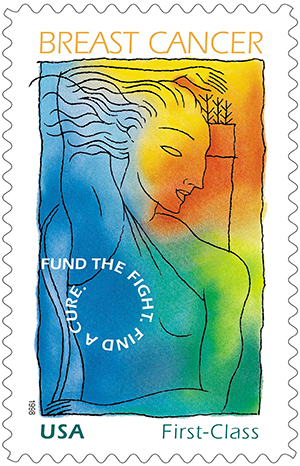 Breast Cancer Research Stamp
Breast Cancer Research Stamp In 2018, the American Cancer Society updated its science-based colorectal cancer screening guideline, recommending that people at average risk start regular screening at age 45 instead of age 50. To ensure all those at risk of the disease are able to access and afford potentially lifesaving screenings, ACS CAN worked to pass legislation that requires insurers to cover all recommended colon cancer screening tests in accordance with the updated guideline. Our team in Maine was successful in convincing state lawmakers to pass a bill in 2019 requiring private health insurance plans to cover these potentially lifesaving cancer screenings starting at age 45.
In 2018, the American Cancer Society updated its science-based colorectal cancer screening guideline, recommending that people at average risk start regular screening at age 45 instead of age 50. To ensure all those at risk of the disease are able to access and afford potentially lifesaving screenings, ACS CAN worked to pass legislation that requires insurers to cover all recommended colon cancer screening tests in accordance with the updated guideline. Our team in Maine was successful in convincing state lawmakers to pass a bill in 2019 requiring private health insurance plans to cover these potentially lifesaving cancer screenings starting at age 45. ACS CAN Leads Sixth Annual Patient Quality of Life Coalition Lobby Day
ACS CAN Leads Sixth Annual Patient Quality of Life Coalition Lobby Day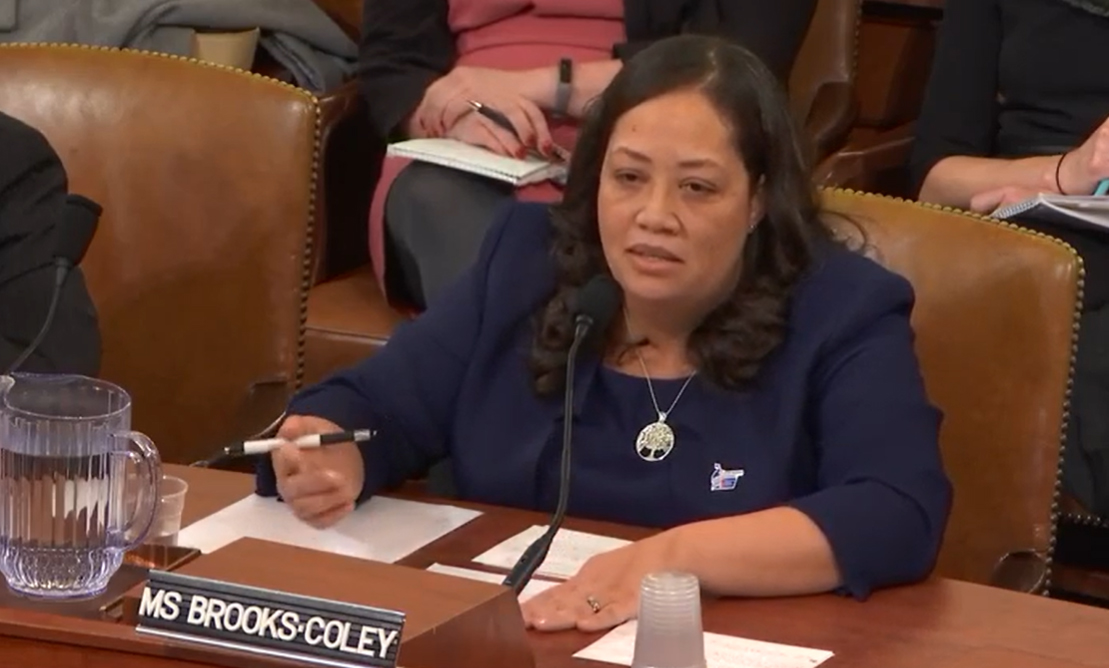 Keysha Brooks-Coley, ACS CAN vice president, Federal Advocacy and Strategic Alliances, testified in January before a House Ways and Means Committee about how the patient protections included in the Affordable Care Act have improved cancer patients’ access to health care.
Keysha Brooks-Coley, ACS CAN vice president, Federal Advocacy and Strategic Alliances, testified in January before a House Ways and Means Committee about how the patient protections included in the Affordable Care Act have improved cancer patients’ access to health care.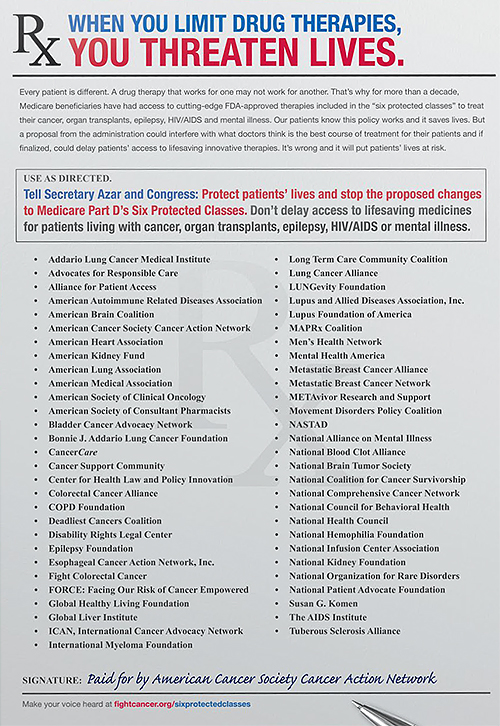 ACS CAN led nearly 60 patient and provider organizations to launch this advertising campaign in January 2019, urging the Department of Health and Human Services to stop the proposed changes to Medicare part D, which could impact timely access to affordable medication for patients.
ACS CAN led nearly 60 patient and provider organizations to launch this advertising campaign in January 2019, urging the Department of Health and Human Services to stop the proposed changes to Medicare part D, which could impact timely access to affordable medication for patients.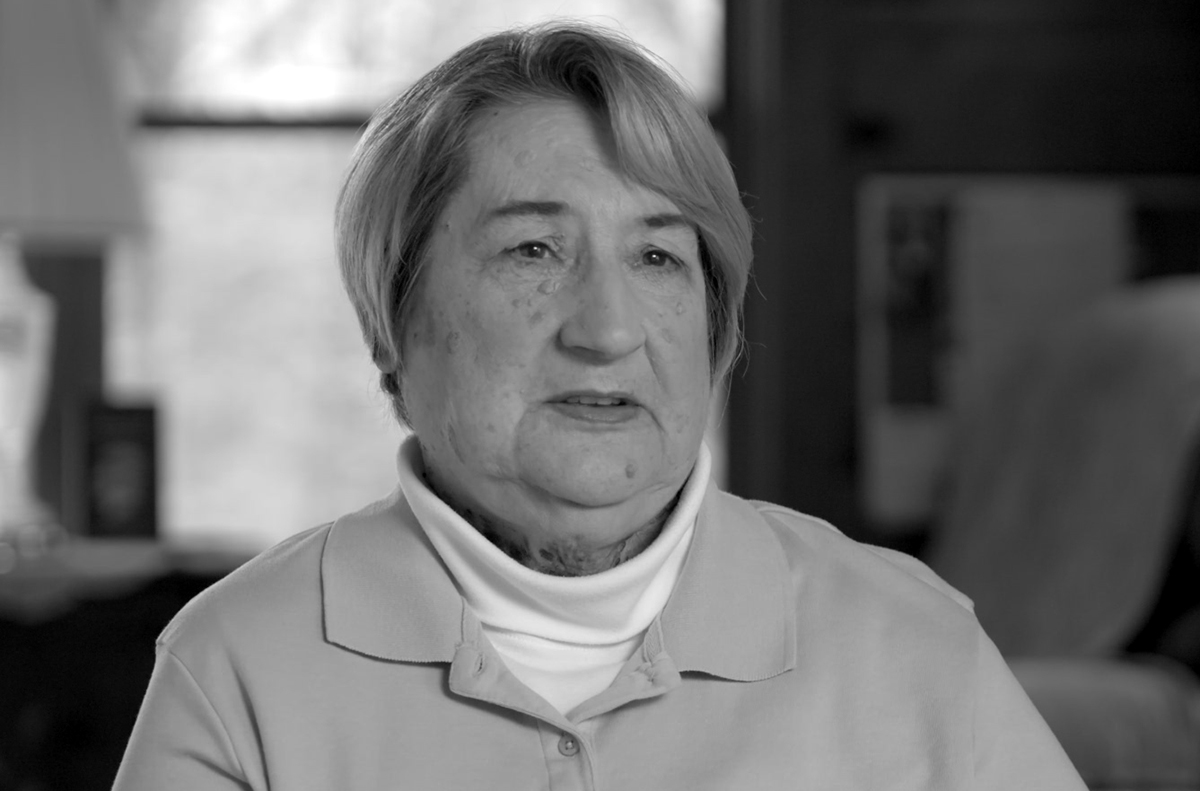
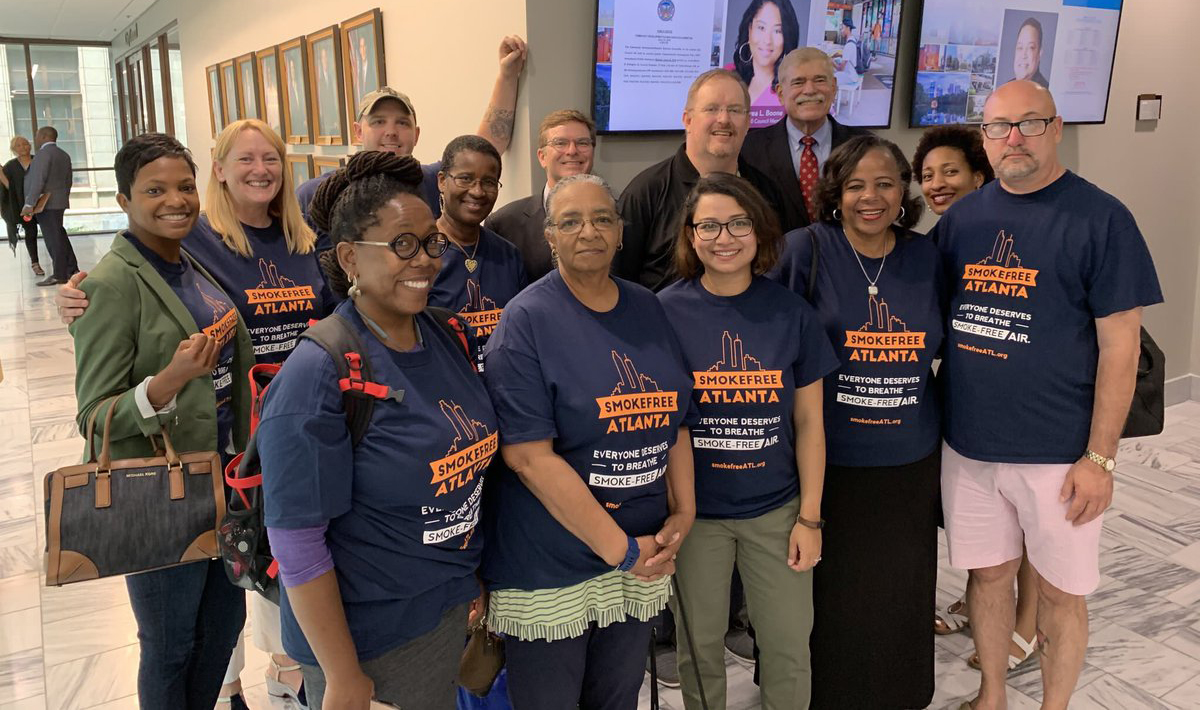 American Cancer Society Deputy Chief Medical Office Len Lichtenfeld (back row, far right) joins ACS CAN volunteers and volunteers advocating for the smoke-free ordinance in Atlanta.
American Cancer Society Deputy Chief Medical Office Len Lichtenfeld (back row, far right) joins ACS CAN volunteers and volunteers advocating for the smoke-free ordinance in Atlanta.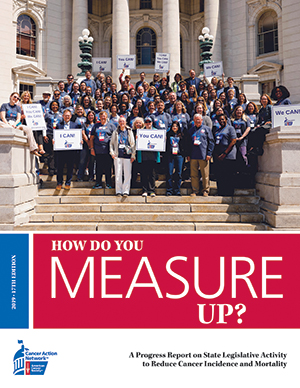 The 17th edition of ACS CAN’s annual How Do You Measure Up? A Progress Report on State Legislative Activity to Reduce Cancer Incidence and Mortality featured a special section highlighting the tobacco industry’s decades-long strategy of coopting seemingly strong tobacco control legislation – Tobacco 21 is just the latest example – to implement weak laws that do not effectively reduce the tobacco burden.
The 17th edition of ACS CAN’s annual How Do You Measure Up? A Progress Report on State Legislative Activity to Reduce Cancer Incidence and Mortality featured a special section highlighting the tobacco industry’s decades-long strategy of coopting seemingly strong tobacco control legislation – Tobacco 21 is just the latest example – to implement weak laws that do not effectively reduce the tobacco burden.